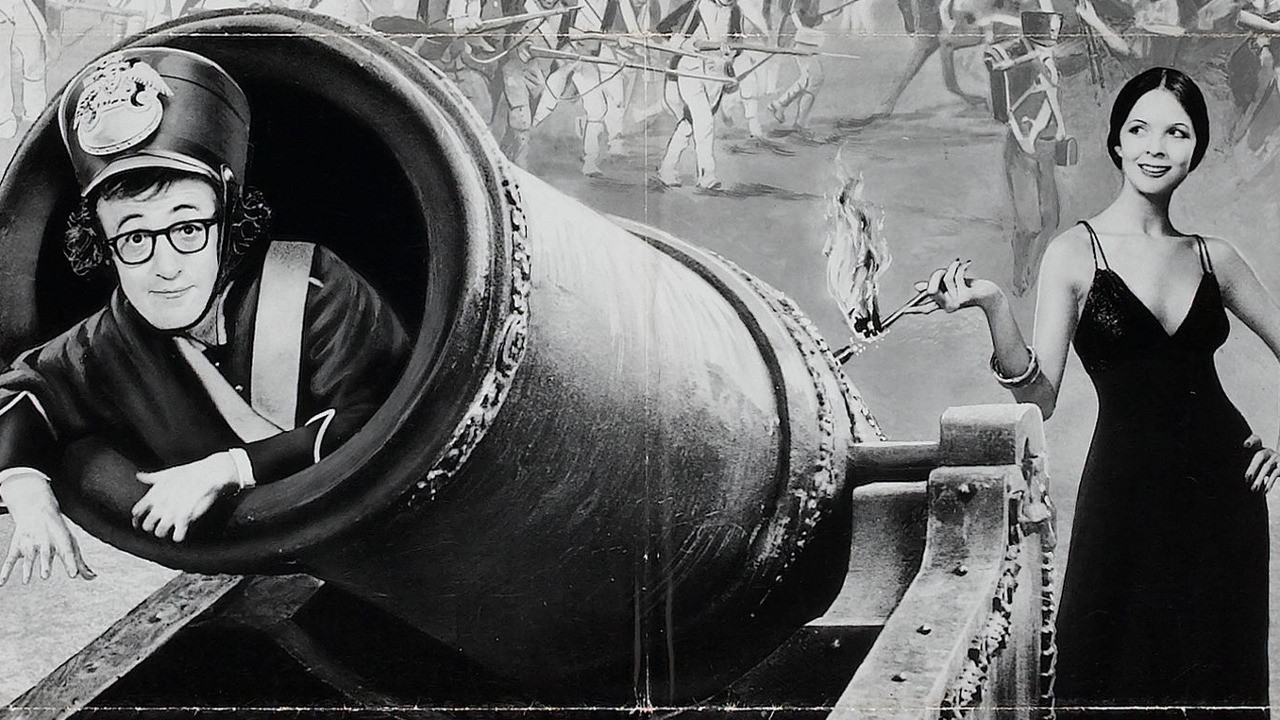…Vavara Petrovna, Turgenev’s mother, had her office furnished like a court of law, with her portrait behind the dais in a pose reminiscent of Catherine The Great. Here the serfs were dealt rough, often irrational judgement for the smallest transgression. Am aid who offered a cup of tea improperly was banished to a remote village; two young serfs who failed to bow to their mistress were exiled to Siberia.
There was one person at Spasskoye who did not belong to Vavara Petrovna, and that was Turgenev’s father, Sergei, a cavalry officer who had married an unattractive woman six years older than himself in order to save his family’s small plantation from the auctioneer’s hammer. After he had accomplished this and after two sons were born—Nicholas and then Ivan- he felt free to pursue the one thing in life that really interested him, pretty women.

—Love and Death 1975
Set in 19th-century Russia, Allen is a cowardly serf drafted into the Napoleonic war, who would rather write poetry and obsess over his beautiful but pretentious cousin. llen’s cowardice serves him well when he hides in a cannon and is shot into a tent of French soldiers, making him a national hero.—click image for source…
Turgenev once said, ” There was nothing I can remember my childhood by. I have not a single happy memory of it.” But the misery of Spasskoye was not without relief. His mother’s time consuming role as czarina of her subjects and his father,s indifference allowed him hours to roam over the countryside, learning the names of birds and trees and flowers, details that give a compelling authenticity to A Sportsman’s Sketches. And it was during these hours of freedom that he became acquainted with the serfs who labored at Spasskoye and on surrounding estates.
From them he gained two things that would greatly influence his work- a knowledge of hunting and of the Russian tongue. it is as a hunter, with all the subtle connotations of that word, that the narrator of the Sketches finds and tells his tales. And as for the language, Turgenev’s forays allowed him to learn a Russian that few aristocrats of his time knew. “The speech of the Russian peasant,” he wrote, “is remarkably simple and clear.” It was because of his almost unique knowledge of their speech that he was able to achieve a stylistic perfection rarely equaled among Russian writers. ( to be continued)…

—Reading of the manifesto of February 19, 1861 by Grigoriy Myasoyedov ca. 1873—click image for source…
ADDENDUM:
(see link at end)…Fathers and Sons
Turgenev’s novel, which first appeared in 1862, was the first Russian novel widely read outside or Russia and one of the most important works of the century.
While it can be taken on face value as the portrait of the discordant relationship of a father and a son, the novel is also clearly a political novel, using the family dynamic as a metaphor for the division of the old Russian social order from the new nihilistic, political radical movements that dominated the political landscape of mid-century Russia.
The Liberalism and Nihilism movements both saw Russia’s future as lying with the West, while the conservative Slavophiles believed that Russia’s salvation lay in Russian tradition and
odox religion. This conflict would dominate Russian politics for the next seventy years.Fathers and Sons is regarded as the first modern Russian novel and appeared at the beginning of a golden age of Russian literature. It was the first Russian novel to find an audience in the west and paved the way for Dostoyevsky and Tolstoy.
The novel would be highly influential on those two writers, who would pick up the exploration of psychology, national psyche and political conflict. The style of the novel would also influence the style of Gustave Flaubert and Guy de Maupassant. Read More:http://thegreatbookslist.com/turgenev.html





 COMMENTS
COMMENTS